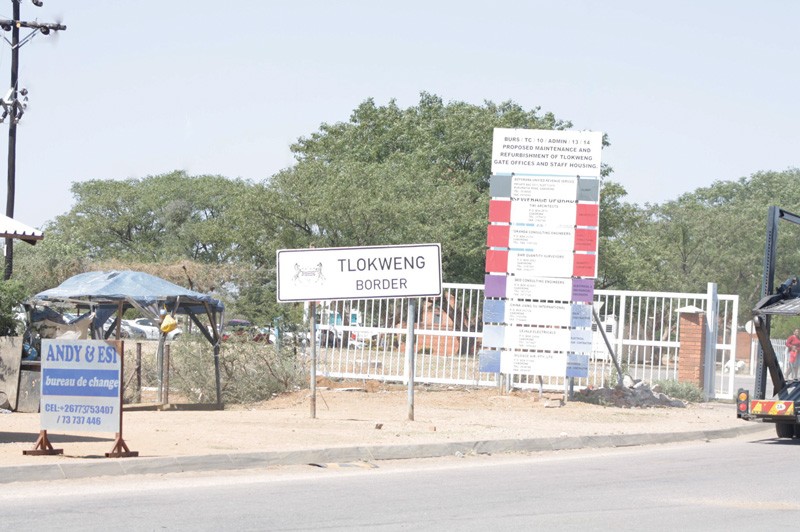High alert as SA customs downs tools
Mbongeni Mguni | Friday March 29, 2019 14:22


South African Revenue Service (SARS) workers affiliated to two unions downed tools indefinitely yesterday demanding an 11% salary adjustment. The National Education, Health and Allied Workers’ Union (NEHAWU) has also threatened to spread the strike to other sectors if the demands are not met.
Botswana is heavily dependent on South Africa for crucial imports, including food, medicine, fuel, equipment and household consumables. Statistics Botswana figures show that in January, 60% of Botswana’s imports or a value of P2.7 billion came from South Africa, being mainly fuel and food.
Yesterday afternoon, a Mmegi news crew that visited the Tlokweng Border Post and its neighbour, Kopfontein in South Africa, found slow movement of trucks at both, with reports that SARS had seconded senior personnel to replace the striking workers. Tlokweng is by far the country’s busiest border in terms of goods trade.
BURS officials reportedly visited their counterparts at Kopfontein early yesterday morning and were informed that for the time being, the situation was under control.
“They confirmed that there is a strike going on and we could also see for ourselves because they had senior officials working there from Zeerust, instead of the usual officers we know,” Tlokweng officials told Mmegi. “For now, there has been no disruption, although vehicles are taking time to clear.”
At Kopfontein, senior SARS officials could be found bustling about as a skeleton staff, seemingly unfamiliar with some of the systems in use at the customs office.
Tahir Maepa, deputy general manager of the Public Servants Association of South Africa told Mmegi that at least 70% of SARS border customs services were down as of yesterday.
“If SARS does not table a revised offer, we will push this strike to the limit so that by the weekend, 100 percent of SARS offices, including borders will be down,” he said by telephone.“SARS is losing between R3 billion and P5 billion daily in this strike and this does not make sense when what we are asking for equates to R700 million on an annual basis.
“They are being difficult and they underestimated the success of this strike.
“We are hoping they will call us back to the negotiating table soon.”
SARS spokesperson, Geraldine Frohling told Mmegi that the situation was under control, although incidents of illegal picketing and gatherings had taken place at various offices. She said at some border posts, striking workers had attempted to interfere with the movement of trucks.
“All customs border posts are operational with the contingencies that have been put in place and customs have received great support from the South African Police Service across all border posts,” she said.
“There were attempts at some borders to stop the flow of traffic like trucks, but the situation was quickly handled by the police and we are not aware of any hold up.
“We advised the neighbouring countries, including Botswana, of the impending strike a few days ago so that they are not caught by surprise.” BURS officials had not responded to a questionnaire sent to them yesterday morning on what measures would be taken if the SARS’ strike intensified. Previous strikes by workers in South Africa have caused crippling fuel shortages in Botswana, pushing government to prioritise the diversification of fuel import lines.
